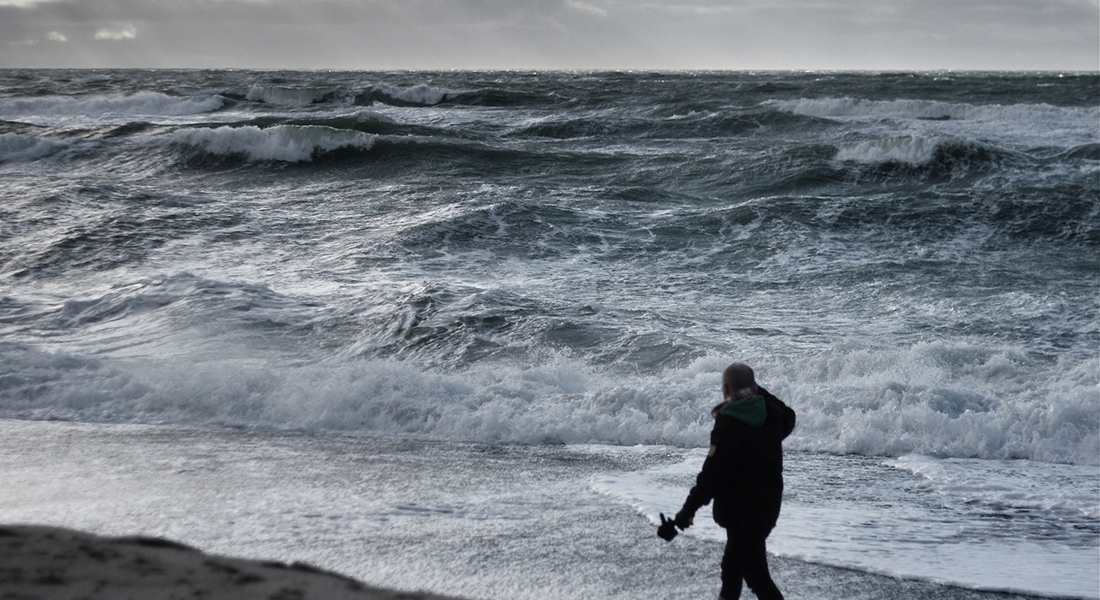Mapping concerns about rising seawater
How do citizens living on the coasts of four countries in the North Sea region worry about future sea level rise and storm surges? This is the question Kristoffer Langkjær Albris will investigate in a project that DFF is supporting with a Sapere Aude Principal Investigator grant.

Over the past decade, storm surges and other hydrological and meteorological extreme events in Northern Europe, including Denmark, have received increased attention.
Although it has been scientifically documented that sea level rise in the coming century will have major consequences for both nature and humans, there is a lack of knowledge about what this will mean for how North Sea inhabitants will adapt in the future.
Kristoffer Langkjær Albris, Associate Professor at the Department of Anthropology and SODAS, aims to fill this gap in a new project entitled ‘SURGE - Anticipatory Narratives of Sea Level Rise in the North Sea Region'.
“My hope is that the project can make a valuable, knowledge-based contribution to the public understanding of what climate adaptation in this area might look like in Denmark and the North Sea region as a whole,” he explains.
Expectations for climate adaptation
The SURGE project will conduct a comprehensive study of how citizens living on the coast of four countries in the North Sea region worry about future sea level rise and storm surges.
Specifically, the researchers will investigate how such concerns are expressed through narratives. To this end, the project will collect a large textual dataset through ethnographic interviews with citizens living on the coast and through qualitative online research.
“The ambition is to understand how expectations of the future shape priorities and motivations in the present in relation to climate adaptation along the coast,” says Kristoffer Langkjær Albris.
Throughout his research career, he has been concerned with how people adapt to their environment, especially in relation to extreme events and disasters.
Targeting huge datasets
The project is ambitious: The researchers intend to collect interviews with citizens in Denmark, Germany, the Netherlands and the UK. The comparative dataset will then be analysed using a range of computer-assisted techniques, including machine learning.
This will allow researchers to systematically analyse people's expectations of the future through narratives.
‘It will be a great challenge to collect a large and robust dataset that makes these types of analyses possible. However, this is also where the project aims to make a methodological advance by conducting quantitative text analyses of primarily qualitative data material – which is an important area at SODAS,’ emphasises Kristoffer Langkjær Albris.
The SURGE project is supported with DKK 6.2 million from Independent Research Fund Denmark in the form of a Sapere Aude grant.
Contact
Kristoffer Langkjær Albris
Associate professor, Department of Anthropology and SODAS
Mail: kristoffer.albris@sodas.ku.dk
Phone: +45 26 20 23 77
Simon Knokgaard Halskov
Press and communications officer
Mail: sih@samf.ku.dk
Phone: +45 93 56 53 29
